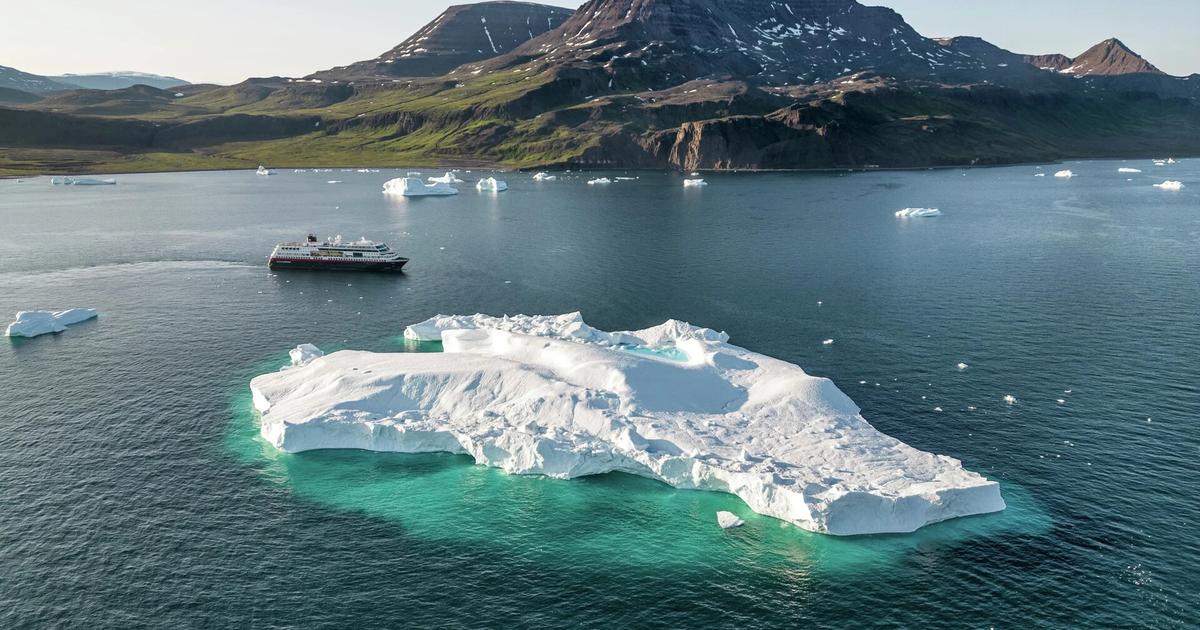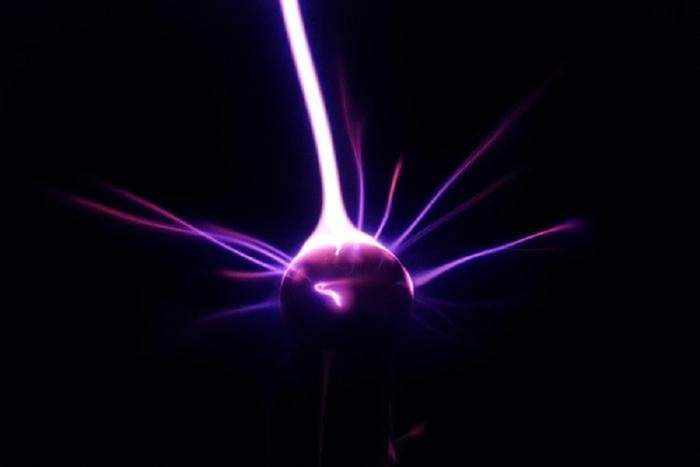Ignacio Oficialdegui (Pamplona, 55 years old) is one of the only three human beings who have achieved the feat of stepping on the exact point of Antarctica furthest from the sea.
This biologist and wind researcher has crossed the frozen continent three times, planting his feet once on the geographic North Pole and twice on the South Pole.
He has just been chosen, among more than 400 candidates, as one of the 50 most influential explorers in the world by the Explorers Club of New York.
He is the only Spaniard on the list.
All this while he works as director of Wind and Photovoltaic Technology at Acciona Energy.
Oficialdegui attends this newspaper by phone on his way to the Alps, where he plans to spend a week practicing mountaineering.
For him, this is a "day-to-day" hobby, because expeditions to Antarctica are not something he can do continuously, he explains with a laugh.
Some of his trips to the frozen continent have been made with the Wind Sled, a transport made of wood, ropes and kites on which he has been working for 20 years and with which he has shown that it is possible to explore Antarctica in a sustainable way. .
When he returns home after an extreme expedition, Oficialdegui always promises himself that this time will be the last: “It ends and you say: 'I don't want to go back.
I want a year to pass;
in summer I go to the beach and at Christmas stuff myself with nougat”.
However, she ends up becoming, at least, the penultimate.
It's hard to stop doing something you've been passionate about since you were a child.
From childhood comes that "curiosity" of "taking the road without knowing where it goes".
He considers that the "greatest attraction of Antarctica is the unknown".
“You can't even get an idea of what that's like on Google.
Everything is white, ice, there are no cities, there are no towns, there are no roads, there is nothing.
It's like a magnet”, assures someone who has bought “cupboards and map cupboards” in his life until he discovered Google Earth, where he spends hours and hours “peeking” around every corner.
He got started in the world of exploration because he saw an ad asking for people willing to go to Greenland to explore an uncharted area.
For two decades he has been working together with another explorer, Ramón Larramendi, on the Wind Sled project, an
amateur initiative
that they develop in their spare time, putting money out of their own pocket, but that little by little has been attracting the attention of investors.
The ideologue of this means of transport is Larramendi, who introduced Oficialdegui to the world of polar exploration and presented his candidacy to the Explorers Club of New York.
Oficialdegui, Larramendi and Juan Manuel Viu were the ones who in 2005 reached the exact place defined by the British Antarctic Survey scientific institute as the most difficult to access on the white continent due to its distance from the sea.
Larramendi was inspired by the Inuit culture to design the Wind Sled, which combines technological advances with the most basic.
Oficialdegui rules out carrying out his extreme expeditions with technological vehicles, not only because it is impossible to solve a breakdown “in the middle of Antarctica”, but also because the necessary logistics are enormous: “Hercules planes, airports, bases, and thousands and thousands of liters of fuel that have to be moved, not to mention the environmental impact”.
The Wind Sled, on the other hand, uses the energy of the environment itself.
With the wind and "four bars, some ropes, and cloth, it works."
The Navarrese biologist Ignacio Oficialdegui, at the ceremony marking the geographic South Pole in Antarctica, during his 2011-2012 expedition, in a courtesy image.
The extreme expeditions require "a tremendous analysis of everything that can happen in a place that "not even microorganisms have been able to colonize."
The cold is negative 25 degrees on a sunny day, 40 below zero on the worst days.
“But there are some loose moments when you're fine, like when you get into the bag on a sunny day, even if it's forty below zero, and you say: 'How wonderful, how hot'.
The problem comes when any of the conditions are distorted.
In one of the expeditions they spent five days without being able to move the sled due to lack of wind.
They didn't know if they could get it out of there, since it weighs two and a half tons.
So, "you have to adapt mentally, get the best out of your head," he explains.
Of course, knowing that one has gotten into that mess voluntarily does not help: “When they come badly, the human being has a hard time, but he also has the ability to adapt.
To do these types of projects you have to willingly get into trouble.
And when you've gotten into trouble and you have to accept the difficulties... well, it has its point of complication and you have to mentalize yourself”.
Oficialdegui advances that he will participate in more expeditions.
He returned from the last one at the beginning of 2019, and the pandemic has only been one point and followed by the fact that he has forced to suspend as many other planned ones.
He already has his sights set on the spring of 2023, when he plans to return to Antarctica and, why not, "surely something for Greenland".
He explains that there are more and more companies and projects interested in what is called "pure or close to ultra-pure research", that is, research that "leaves a minimal footprint or impact on nature".
Among them, the Spanish Polar Committee.
He intends to continue working on technological improvements that allow him to "carry more weight" on the Wind Sleigh, but for that he needs "more research" and "people who have resources" to help them.
They put the ideas.
The Navarrese biologist stands out among the key people in his life, his father, who without having anything to do with exploration or with nature, always supported him.
He makes a special mention of the mother of his three children: "Being the partner of someone who is lost all the time in places where no one knows where they are is very hard."
His family is what she misses the most during the expeditions.
Knowing that “a home” is waiting for you helps you have a life like yours.
Another of his recurring dreams on long expeditions, he confesses, is that of trying a steak with chips again.
Exclusive content for subscribers
read without limits
subscribe
I'm already a subscriber




/cloudfront-eu-central-1.images.arcpublishing.com/prisa/DNSTTCXDOIC6ZRD332COHAO65Q.jpg)

/cloudfront-eu-central-1.images.arcpublishing.com/prisa/WPWCSHOWPNB4ZHMQCKZJHXPMOM.jpg)
/cloudfront-eu-central-1.images.arcpublishing.com/prisa/RDP7XNGW75D75IA7EEZLKLBVJQ.jpg)

